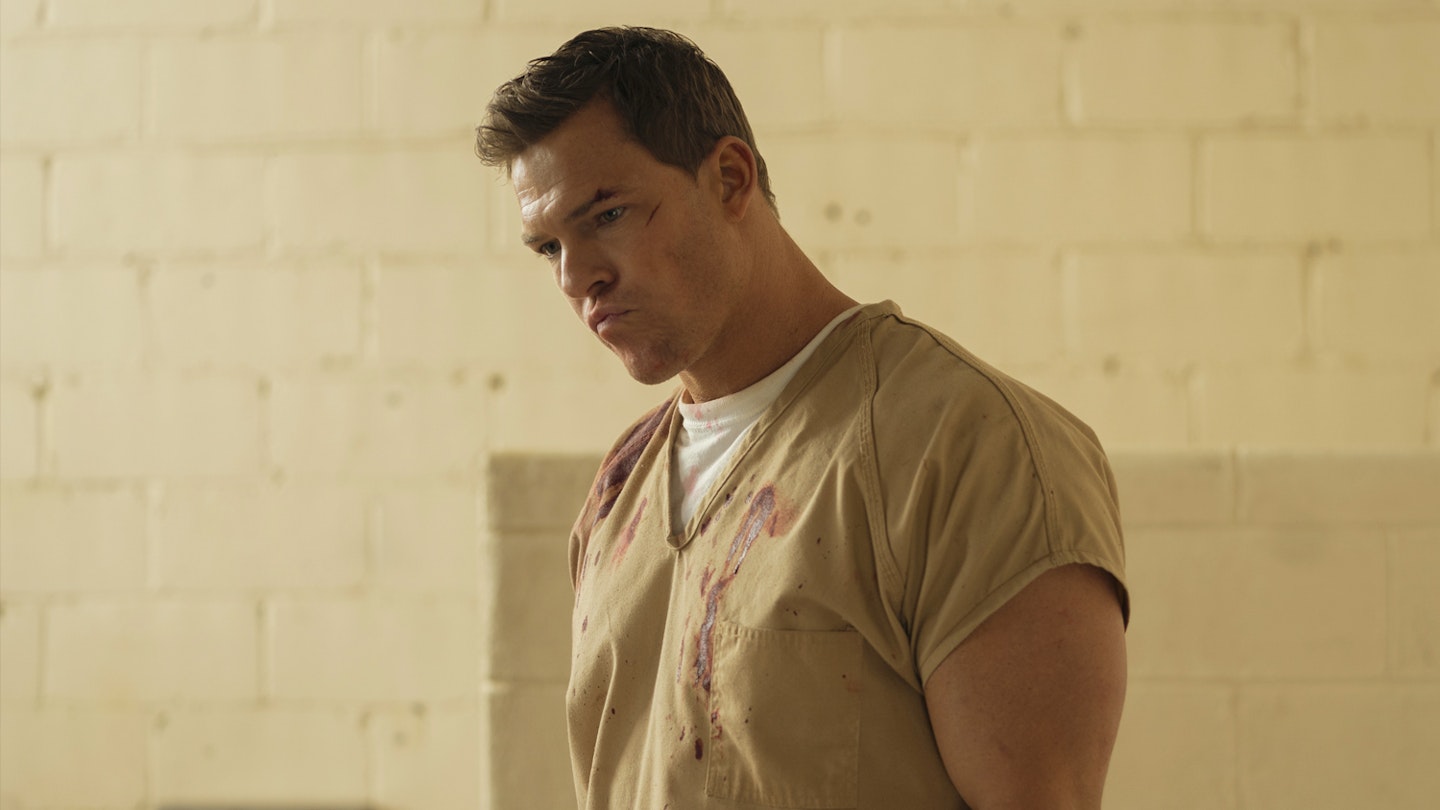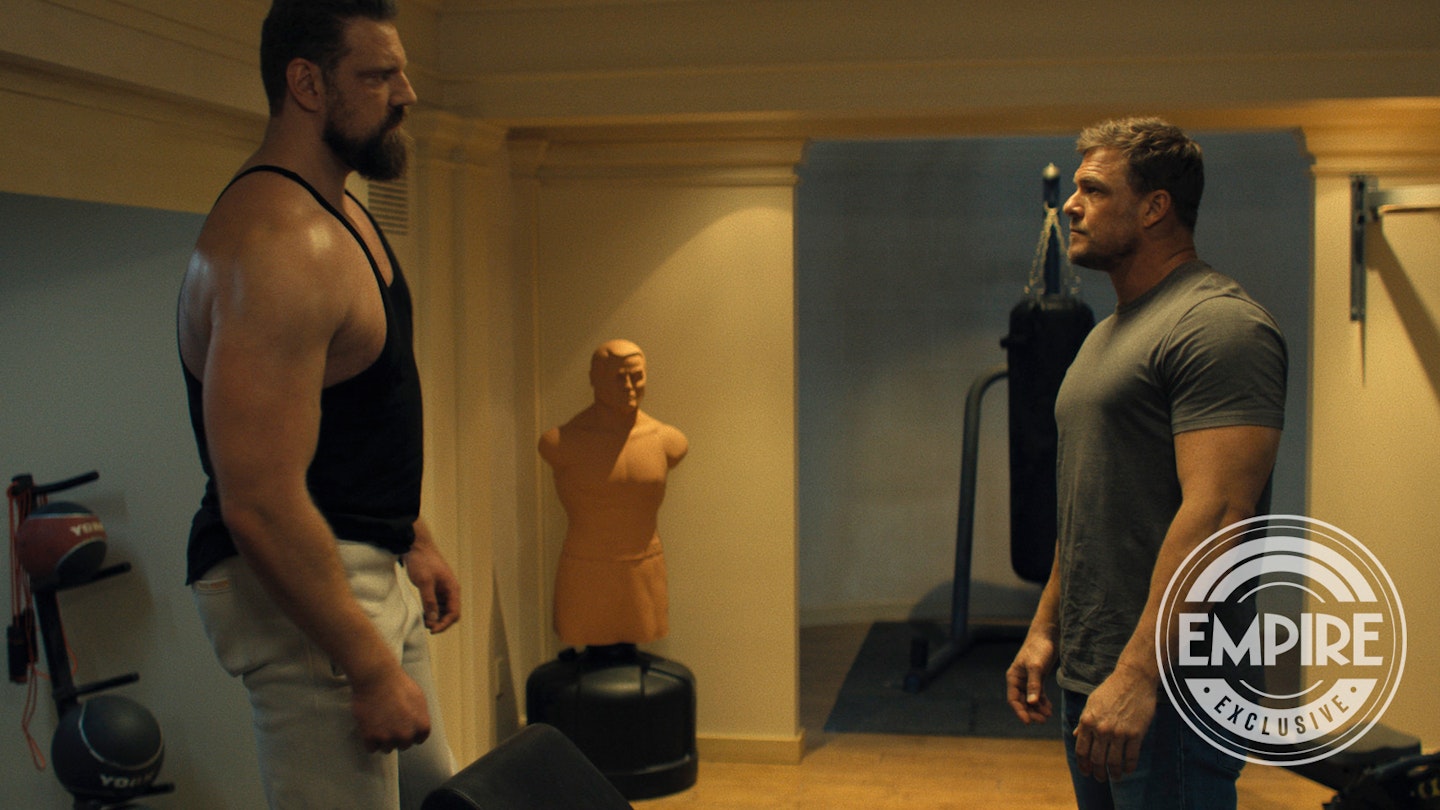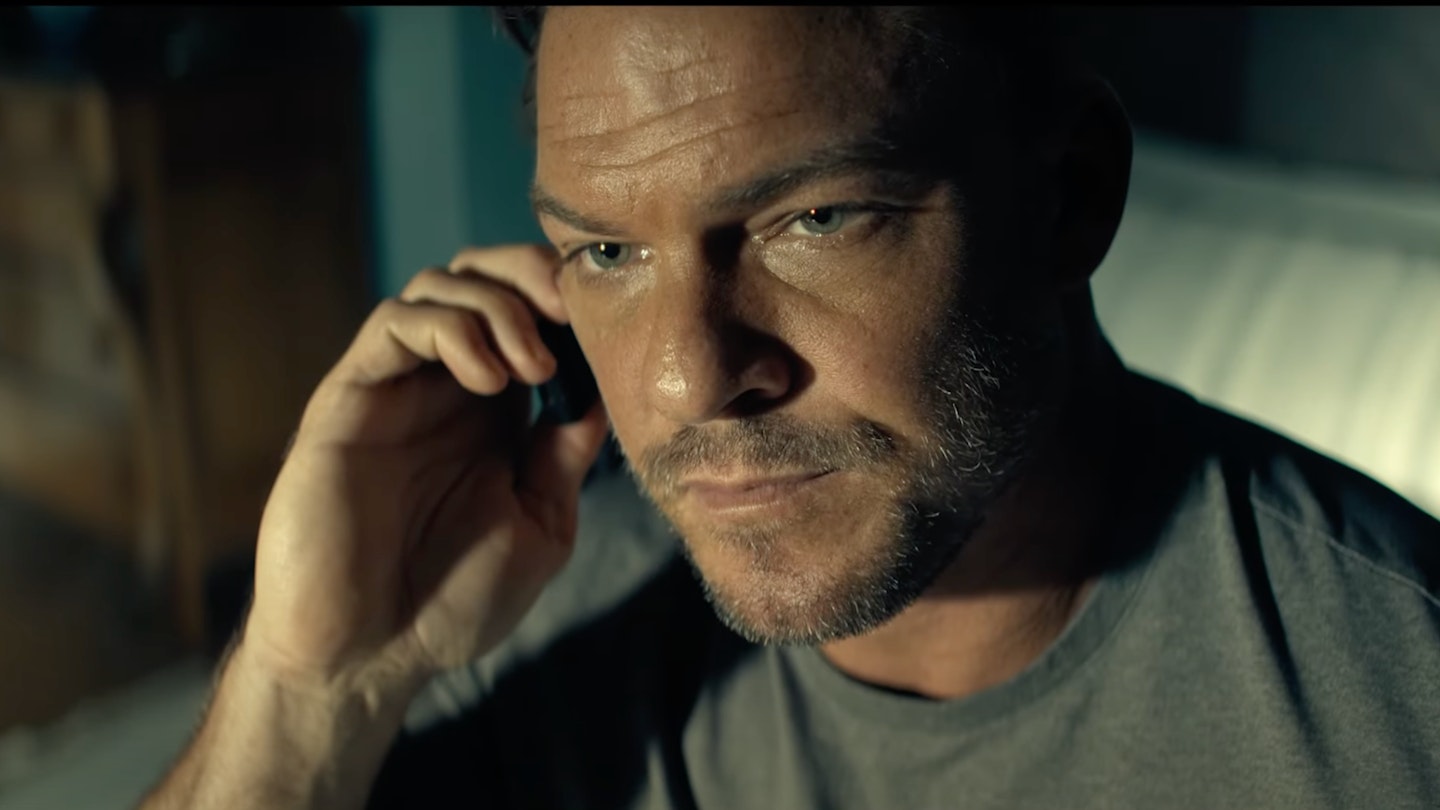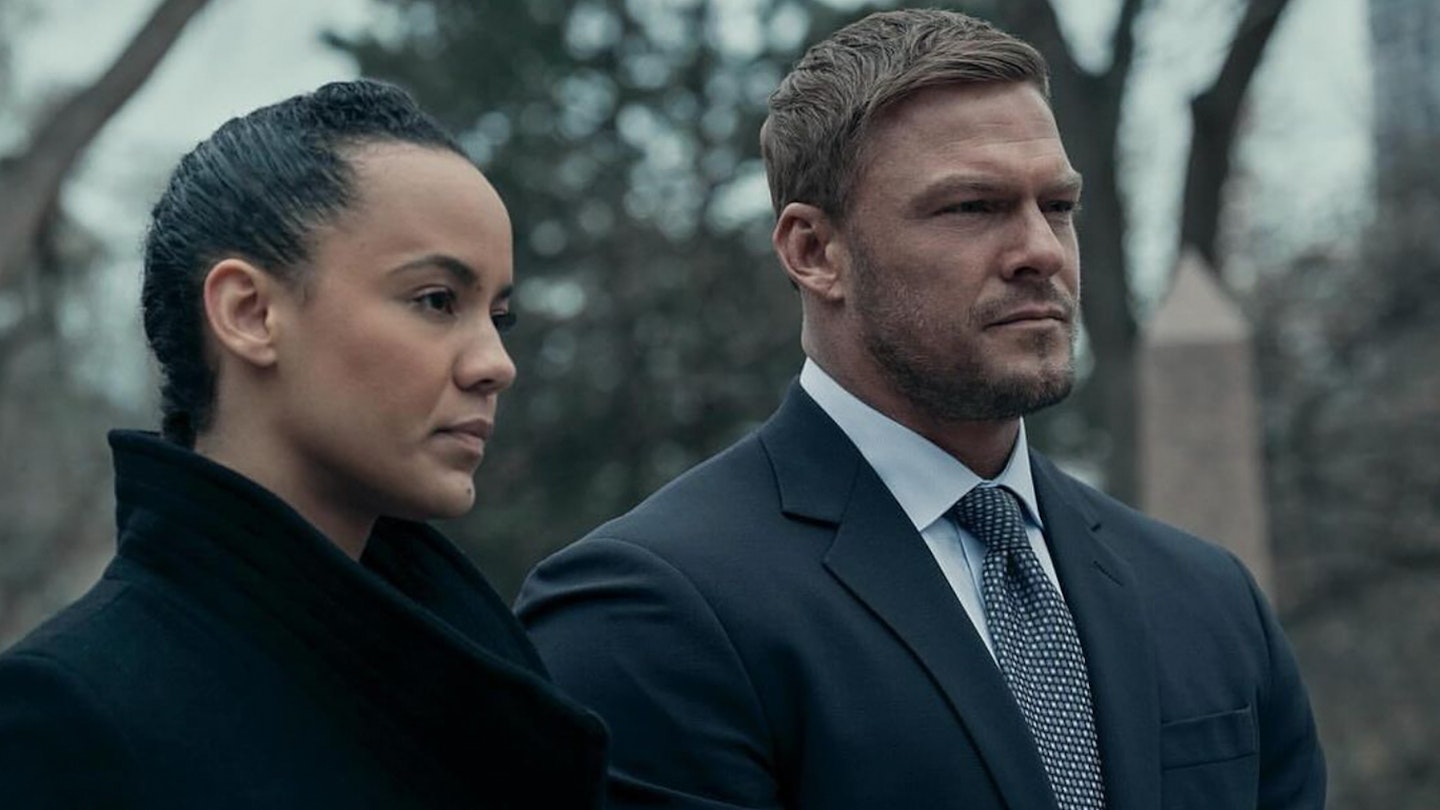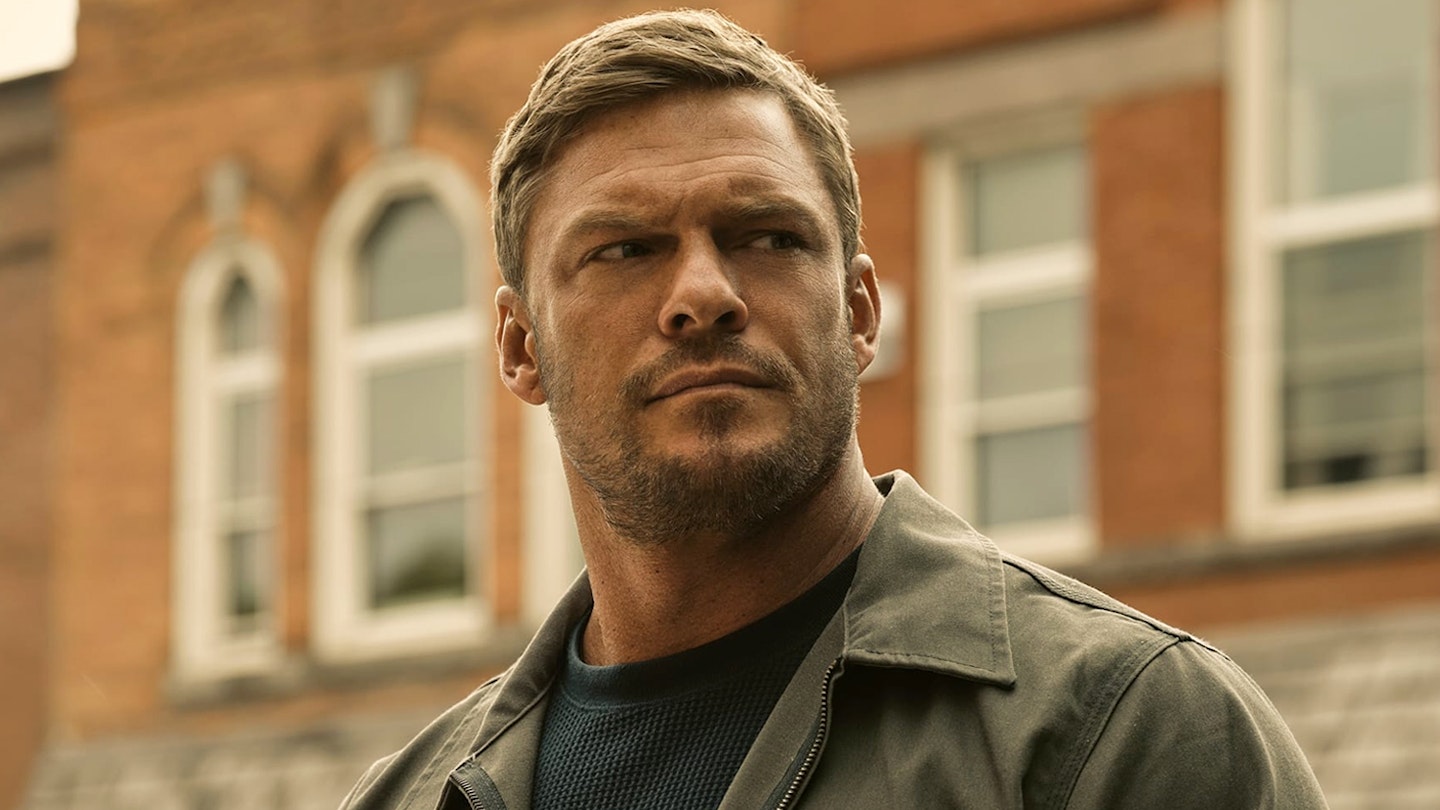When Tom Cruise was announced to play action hero Jack Reacher, the fan reaction was loud and clear. Though Cruise would ultimately do a good job of embodying the ex-military police major-turned-drifter, he wasn’t the 6’ 5”, 250lbs muscle man described in Lee Child’s novels. With the casting of Alan Ritchson, Reacher — an eight-episode season based on Child’s first book, Killing Floor — does right by its titular character in more ways than just his stature.
It’s this physical presence that is immediately evident, though. “Reacher said nothing” is a famous recurring text from Child’s books, and showrunner Nick Santora translates that to screen for as long as he possibly can, with Reacher strolling into Margrave, putting a would-be abuser in his place, and getting arrested — all without saying a word or throwing a fist. The stillness, buffness, and don’t-screw-with-me attitude is all effectively communicated by Ritchson.
When the time comes for Reacher to land a punch (or unleash a headbutt) the results are satisfyingly brutal, with the best brawl taking place in Episode 1’s bone-breaking prison-fight. It’s a bit disappointing that no other skirmish quite matches this scene’s intricate choreography, but a stealthy sequence in a later episode also impresses, and the action maintains a fine standard throughout.
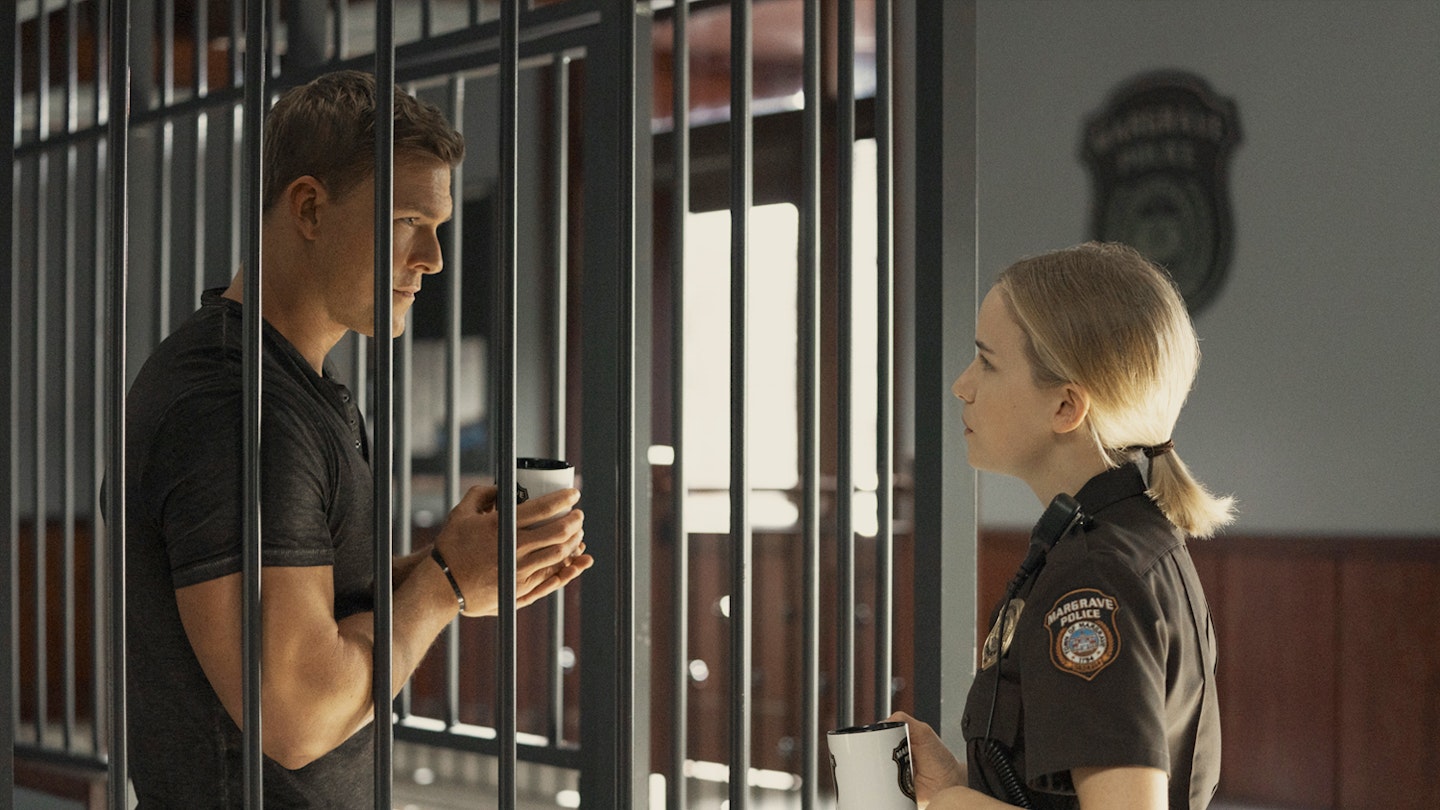
Reacher isn’t just the brawniest guy in the room, but the smartest. For the most part, the byzantine mystery linking Margrave's criminal element with mysterious shipments and “a lot of animal feed” is one befitting of Reacher's intelligence. The dynamic that forms between Reacher and his cop allies Roscoe (Willa Fitzgerald) and Finlay (Malcolm Goodwin) as they solve the case together is fun to watch, with our drifter’s brazen attitude slowly but surely rubbing off on the makeshift team. It’s mildly frustrating when the screenplay contrives to split up the trio in the back half of the season, but the introduction of Frances Neagley (Maria Sten) — with whom Reacher shares a history — brings its own winning rapport.
With Reacher finding time to peel back some of its hero’s layers, it makes a strong case that long-form TV is the best way to adapt Child’s prose.
More frustrating is the fact that Reacher is much more compelling when it keeps us guessing about the conspirators' identity. After they’re revealed, things become less interesting. There’s a lack of menace when Reacher finally faces off against the villains, making for an underwhelming finale, and it’s not helped by plotting that leans into some annoying tropes (the damsel-in-distress that needs a big strong man to save them, for example).
But even though the landing isn’t satisfyingly stuck, it’s still worth taking this journey. With 26 (and counting) books, Jack Reacher’s history on the page is long and beloved, but there were only two Tom Cruise films. With Reacher finding time amidst the brawn and the smarts to peel back some of its hero’s layers — both through relationships he forms in the present and various flashbacks to his childhood — it makes a strong case that long-form TV is the best way to adapt Child’s prose. Here’s hoping this is just the start of his small-screen adventures.
